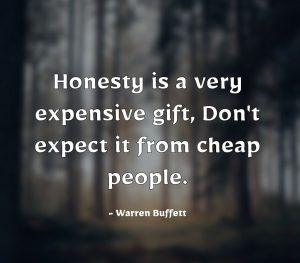《自律養生實踐家之旅332》 最高等的生物,最低等的表現

「我拿出鉛筆和筆記本,畫了一張圖:母樹、小樹、幼苗,線條在三者之間交織,浮現出一個如神經網路般的圖案,就像人類大腦的神經元。」
這是《尋找母樹》(Finding The Mother Tree)中的一段文字。在這段文字後,作者蘇珊·希瑪爾(Suzanne Simard)寫下:「不可思議。」
她所指的神經網路,其實是森林土壤中的菌根網路。人類大腦的突觸結構,竟也以另一種形式活生生的存在於大地之中。
當你讀到樹木之間如何「誠實」分享營養,或許也會像我一樣,不禁抬頭詢問造物主:「這也是您的創作嗎?」
「誠實」是我賦予它的形容詞,因為在這個星球上,似乎只有一種生物會選擇不誠實。諷刺的是,那正是我們自詡為最高智慧的人類。我們擁有最高等的認知,卻展現最低等的態度。
從《報告狗班長》(Dog Whisperer)的故事得知:動物對愛與關懷的感知極其敏銳,令人驚訝的是,樹木的感受能力也毫不遜色。
能與大自然共鳴,是一種智慧,日本「蘋果爺爺」的自然農法就是最佳典範。當我們順應自然,萬物和諧,一旦逆天而行,災難埋下伏筆。
在《食慾科學的秘密:蛋白質知道(Eat Like The Animals)》中,有這麼一段實驗敘述:「我們讓每隻蝗蟲只能吃單一種類的食物,無限量供應,但由我們固定蛋白質與碳水化合物的比例。這樣的設計,是為了觀察牠們對蛋白質與碳水的偏好,結果是:蛋白質獲勝。」
這個實驗傳達了一個簡單卻深刻的訊息:營養均衡,是動物的本能。只要有選擇的機會,牠們會讓自己攝取最合適的營養比例。蝗蟲如此,其他昆蟲亦然,哺乳動物與植物亦復如此。
萬物皆知平衡,人類卻遺失了這份天賦,這不是能力的缺席,而是選擇的錯誤。
我們的身體其實一直在努力維持營養的平衡,盡其所能從有限資源中調度最佳比例。可惜的是,它的努力經常遭到它的「宿主」無情破壞。
這劇本像極了強盜與衛兵的鬥爭:身體試圖守護自己,而我們卻處心積慮的策劃掠奪。
《能量悖論》(The Energy Paradox)的作者史蒂芬·岡德里(Steven R. Gundry)在書中提到:「那種擺脫不了的疲勞感,不是現代生活的標誌,不是成功的代價,也不是自然老化的必然現象。」「我們本該能夠在活躍的一天裡持續充滿能量,並在夜晚獲得充分休息,隔天再次充滿熱情的醒來。」
這段話回應了前述的「營養迷失」,其實我們都知道,當身體狀況不對時,它會發出警訊:飢餓感、渴望感、疲憊感,這些都是自然的語言。我們不缺感知力,缺的是願意誠實面對的勇氣。
如果我們繼續爭論營養理論,而不實踐身體智慧,那無異於原地打轉。比起立場的爭執,更值得的是進入「翻轉體質」的行動。
對我而言,斷食就是最具革命性的起點。
透過斷食,讓大腦的干擾退場,身體終於得以清晰發聲。牠會指引我:什麼該吃、什麼該停、什麼才是滋養。
而這也是人類與其他生物的最大差異:我們的飲食決策不僅來自身體,還被大腦操控。
大腦在飢餓的誘惑下,經常說謊,為了口感、情緒、記憶、習慣……,我們「吃錯」的歷史,是人類文明的寫照。
人類的墮落不僅因貪婪,更因能為貪婪辯解的聰明。
飲食業、醫療業,背後都是一套完整的商業邏輯。攤開菜單,滿滿的飯麵選項,既反映了成本結構,也餵養了大眾的食慾習慣。
營養失衡的社會現象,其實可以從「就業」與「消費」這兩大面向找到蛛絲馬跡。每一個選項背後,都藏著人的利益,而非身體的需求。
我們究竟是最高等的生物,還是最高等的說謊者?低等生物只有集體意識,沒有個人立場;而人類則生活在「個人利益至上」的叢林中。
我們上癮至深、藥癮不返;當你目睹一個人困於無法自拔的處境時,請別忘了,在他的背後,有一條貫穿整個系統的金流。
我不敢斷言我們是否仍具備「最高等的能力」,但我確定,透過斷食,我重新拾回了身體的敏銳感知力。
它能辨識食物是否有害,能發出警訊,能幫助我維持最佳的身心狀態。
這一切的關鍵只有一個答案:斷食的日常。
(誠實是一份非常昂貴的禮物,別指望從廉價的人那裡得到。)
The Most Advanced Creatures, the Lowest Form of Conduct
> “I took out my pencil and notebook and drew a picture: the mother tree, the young tree, the seedling. Lines intertwined between them, revealing a pattern like a neural network—just like the neurons in the human brain.”
This is a passage from Finding the Mother Tree by Suzanne Simard. Immediately after these words, she wrote: “Incredible.”
The “neural network” she refers to is, in fact, the mycorrhizal network in the forest’s soil—a living structure that mirrors, in another form, the synaptic architecture of the human brain.
When you read how trees “honestly” share nutrients with one another, you might, like me, look up and ask the Creator: “Was this Your design as well?”
I use the word honestly because on this planet there seems to be only one creature that chooses dishonesty—and, ironically, it is we humans, who pride ourselves on being the most intelligent. We possess the highest level of cognition, yet display the lowest level of conduct.
From the story in The Dog Whisperer, we learn that animals have an astonishing sensitivity to love and care. What surprises me even more is that trees are no less perceptive.
To resonate with nature is a form of wisdom, and Japan’s “Apple Grandpa” and his natural farming methods stand as the finest example. When we follow nature, all things live in harmony; when we defy it, disaster takes root.
In Eat Like the Animals, there is an experiment described as follows:
> “We fed each locust only a single type of food, in unlimited quantities, while fixing the ratio of protein to carbohydrate ourselves. This was to observe their preference between the two. The result: protein won.”
The message is simple yet profound—nutritional balance is an animal’s instinct. Given the freedom to choose, they will select the ratio most suited to their needs. This holds true for locusts, other insects, mammals, and even plants.
All living things understand balance—except humans, who have lost this gift. This is not due to a lack of ability, but a failure of choice.
Our bodies constantly strive to maintain nutritional equilibrium, skillfully allocating from whatever limited resources are available. Tragically, these efforts are often sabotaged by their “host.”
It is like a battle between robbers and guards: the body tries to defend itself, while we, its owners, plot its plunder.
In The Energy Paradox, Steven R. Gundry writes:
> “That unshakable feeling of fatigue is not a hallmark of modern life, not the price of success, and not an inevitable part of aging. We are meant to be able to sustain energy throughout an active day, rest fully at night, and wake the next morning brimming with enthusiasm.”
This echoes the earlier point about our “nutritional misdirection.” We all know that when something is wrong, the body sends signals—hunger, cravings, fatigue. These are nature’s language. We are not short on perception; we are short on the courage to face it honestly.
If we keep debating nutritional theories without practicing bodily wisdom, we will get nowhere. More valuable than defending a position is taking action to transform the body.
For me, fasting is the most revolutionary starting point.
Through fasting, the brain’s interference steps aside, and the body finally speaks with clarity. It tells me what to eat, when to stop, and what truly nourishes me.
Here lies the greatest difference between humans and other creatures: our dietary decisions are not made solely by the body—they are manipulated by the brain.
The brain, under the temptation of hunger, lies—seduced by taste, emotion, memory, habit. The history of our “wrong eating” is the history of human civilization itself.
Human decline is not only due to greed, but to the intelligence that justifies it.
Behind the food industry and the medical industry lies a complete commercial logic. Look at a menu—piled high with rice and noodle options—it reflects both cost structures and the feeding of the public’s habitual appetites.
The social phenomenon of nutritional imbalance can be traced to two dimensions: employment and consumption. Behind every choice is someone’s profit, not the body’s need.
So, are we the most advanced beings—or the most advanced liars?
Lower creatures live only by collective instinct, without personal agendas; humans live in a jungle where personal interest reigns supreme.
We are deeply addicted—drugged beyond return. And when you see someone trapped in inescapable dependence, remember: behind them runs a cash flow that threads through the entire system.
I dare not claim we still possess “the most advanced abilities,” but I know for certain that through fasting, I have reclaimed my body’s sharp sensitivity.
It can discern whether food is harmful, send warnings, and help me maintain my optimal state of body and mind.
The answer to it all is singular: fasting as a way of life.


